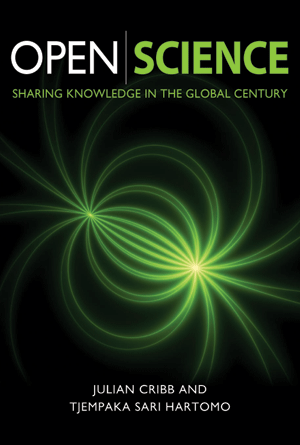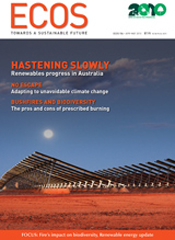
|
Published:
The challenges of sharing scientific knowledge
Scientific knowledge is said to double every five years or so, but according to the authors of Open Science, up to half of all published scientific papers are read only by their authors, editors and reviewers, and 90 per cent are never cited by anyone else.

|
|
Open Science Sharing Knowledge in the Global Century Julian Cribb & Tjempaka Sari CSIRO Publishing 2010, Softcover ISBN: 9780643097636 – AU$39.95 |
Cribb and Sari believe that unless we learn to share the scientific and technical knowledge that already exists, we will be ill-equipped to confront the key issues confronting humanity in the 21st century: resource scarcity, the food crisis, climate change, pollution, pandemic disease and poverty.
‘A vast gap has opened between the creation and the sharing of knowledge,’ the book argues. ‘Because of this, a significant part of the world scientific effort is effectively stillborn or fails to achieve its potential. The intellectual effort, time, money and human genius that is invested in research is lost because of a failure to effectively transmit the fruits of science to the people and places where it is most needed.’
The publication of Open Science coincides with the release of Inspiring Australia: A national strategy for engagement with the sciences, a high-level overview of the state of science communication in Australia undertaken by the Department of Innovation, Industry, Science and Research. This report found that while well-intentioned, many Australian science organisations need to do better at communicating with the public, and advocates conferences, travelling exhibitions, prizes and briefings for science ambassadors – people with the capacity to draw international attention to Australian scientific achievement.
Cribb and Sari go further, providing a practical guide to communicating science, describing low-cost, effective ways of transferring knowledge to industry, government and the public. The book offers useful advice on good science writing, developing communication and media plans, understanding the audience, measuring performance, and managing crises and complex issues for a range of audiences.
Open Science is a much-needed, how-to manual for both organisations and individual researchers, advising them on how to use all available forms of communication to get their message out and into the hands of those who need it most.



